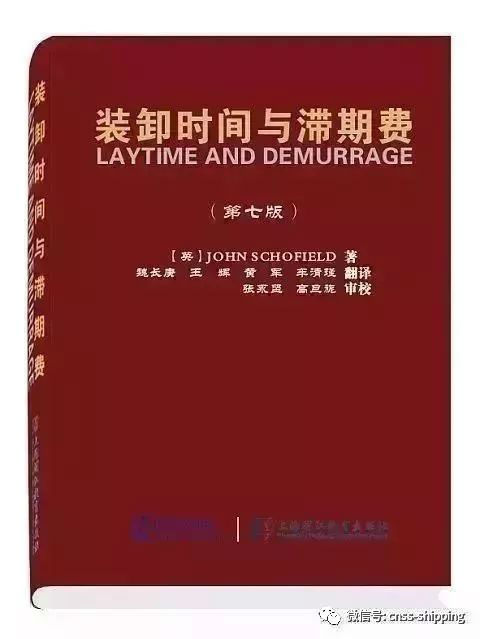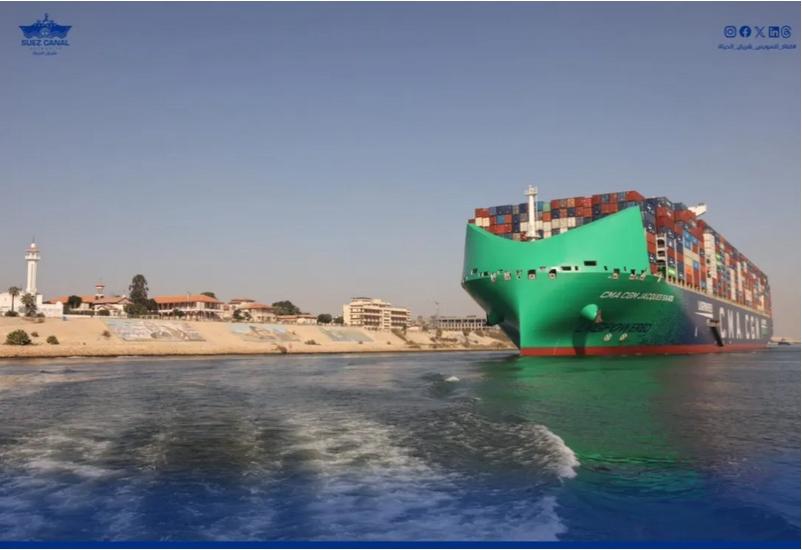Laytime Clauses 装卸时间条款
Customary despatch
习惯性/尽力速遣
2.219 The Charterparty Laytime Definitions 1980 provide:
‘‘CUSTOMARY DESPATCH’’—means that the charter must load and/or discharge as fast as is possible in the circumstances prevailing at the time of loading or discharging.
There appear to be no decided cases as to whether there is in practice a distinction between ‘‘as fast as is possible in the circumstances’’ and loading or discharging ‘‘within a reasonable time’’ or the ‘‘usual and customary time’’, the usual phrase used in relation to customary laytime. It is therefore possible that as fast as is possible in the circumstances would be a reasonable time.
2.219 在1980年租船合同装卸时间条款定义中规定:
‘习惯性/尽力速遣’意思是指承租人必须在进行装卸货物作业当时的情况下尽可能快地装货/卸货。
就习惯性装卸时间条款中有关经常使用的短语,‘在当时环境下尽可能快地装卸’和‘在合理的时间内’或‘通常习惯的时间内’进行装卸货这些短语之间的差异,在实践中好像还没有被判决的案例。因此,很可能在某些情况下‘尽可能快地’就是‘合理的时间’。
Effect of custom
习惯的作用效果
2.220 The words ‘‘custom’’ and ‘‘as customary’’ may be expressly referred to in this type of laytime clause. Whether they are or are not is to a certain extent irrelevant since the law implies an obligation to follow the customs of the port in question for the particular trade. What was meant by custom was discussed by Lord Blackburn in Postlethwaite v. Freeland, where he said:
‘‘custom’’ in the charterparty did not mean custom in the sense in which the word is sometimes used by lawyers, but meant a settled and established practice of the port...

2.220在这类装卸时间条款中,往往明确标有要‘根据习惯’以及‘习惯性的’等字眼。无论它们是否属于习惯,在一定程度上讲是没多大关系的,因为对于具体贸易活动而言,法律会默示要求遵循有关港口的习惯的义务。究竟什么才能够算习惯,Blackburn勋爵在Postlethwaite v. Freeland—案中是这样表述的:
租船合同中的“习惯”一词在含义上同律师们有时使用的‘习惯’一词不同,而是指该港所确立的和为人们所接受的习惯作法……
2.221The question as to for how long a practice must exist before it becomes a custom was considered by Kennedy J in Sea Steamship Co Ltd v. Price, Walker and Co Ltd. In that case, it was suggested that some 14 years before, the resident merchants, the owners of lighters and the local stevedores had come to an agreement concerning the rate at which certain vessels should be discharged and that this therefore constituted a custom. Rejecting this, Kennedy J said:
In my opinion, in order to establish a mercantile custom it is necessary, not only to show that a large number of influential people at the place have agreed that it would be a good thing... but also that the agreement was acted upon, because, unless it is acted on, no one will challenge it... A custom cannot be established merely by three or four important classes of persons in a community of a port agreeing that it is desirable. It must be enforced...
2.221 问题是一种作法必须要存在多久才能成为习惯呢? Kennedy法官在Sea Steamship Co Ltd v. Price,Walker and Co Ltd —案中曾做过深入探讨。在那个案子中,曾建议说,大约14年前,当地的货主、驳船船东以及当地的装卸工已经就有关具体船舶的卸货率达成了一个协议并因此构成习惯。Kennedy法官否决了这一点, 说:
我的看法是,要确定一种贸易习惯,不但必须要看到当地大部分有影响的人都认为它是一种好方式……而且还要使协议建立在这种习惯之上,因为,如果不付诸实施,也就不会有人对它提出挑战……一种习惯不能单靠一个港口社团中的三四个重要级别的人物觉得称心如意就能够确立的,它必须是具有强制力的……
2.222 There is, however, no objection to the custom being reduced to writing. In Norrkopings Rederiaktiebolag v. Wulfsberg & Co, Greer J declared:
The custom of the port, for the convenience of shipowners and merchants, has been reduced to writing, and though one does not necessarily interpret the document in exactly the same wording as one would a document which was written out for the purpose of containing the terms of a particular contract, still effect has got to be given to the words used, because people going to the port of Hull must be presumed to know, and probably do know, that the custom of the port has been put into the document, and can be found there just as readily as the Rule for Preventing Collisions at Sea.
2.222尽管如此,大家对被归结为文字的习惯却没有什么异议。在Norrkopings Rederiaktiebolag v. Wulfsberg & Co—案中,Greer法官曾宣称道:
为了方便船东和货主了解,港口习惯已转化为文字的表述了,而且对它的解释也没有必要像某些合同中缮写出来的条款那样准确,但它的内容确实有影响,因为,假如人们要去英国赫尔港的话,他们想必一点会知道,而且完全有可能知道该港的习惯,因为它们已被编入有关的文件资料中,人们完全可以像查找《海上避碰规则》一样容易地查阅到它。
2.223 Once a custom is established, the fact that people may contract themselves out of the custom does not of itself destroy the custom, but the practice of contracting out may become so general as to destroy the custom. Once the custom becomes the exception and not the rule, there is no longer a custom.

2.223一旦某种习惯被确定下来,若当事双方在订立合同时把他们自己置于习惯之外,这一事实本身,并不算打破习惯,但,合同的履行超出习惯之外变得如此普遍时,就会被视为是打破习惯。一旦惯例变为除外情况,而不再是准则,它就不再被称之为习惯了。
2.224 An example of contracting out of a custom arose in Maclay and others v. Spillers & Baker Ltd, where the bill of lading provided for the goods to be received by the consignee ‘‘immediately the vessel is ready to discharge and continuously . . . , any custom of the port to the contrary notwithstanding’’. The Court of Appeal, reversing the judge below, held that the express provision excluded the custom of the port.
2.224订立合同时脱离习惯的案例是Maclay and others v. Spillers & Baker Ltd—案。在该案所涉及的提单中规定‘一旦船舶做好了卸货准备,收货人就应立即延续不变地卸货,……而不管该港的习惯是否有任何相反的规定’。上诉法院撤销了下级法院的判决,判定,该明示条款将该港的习惯排除在外了。
2.225 Where the words ‘‘custom’’ or ‘‘customary’’ are used, they relate to the way in which cargo is loaded or discharged, rather than the time the operation should take. In Castlegate Steamship Co v. Dempsey, Fry LJ had put this slightly differently and, with respect, more accurately, saying:
They, therefore, primarily refer to manner of discharge, and secondarily only to time. They are not entirely disconnected with time, because the dispatch is to be in the customary manner, and that manner may be one which expedites or delays the discharge of the cargo.
2.225当使用‘习惯’或‘习惯的’词语时,他们针对的是装卸货的方式,而不是作业所花费的时间。在Castlegate Steamship Co v. Dempsey案,Fry大法官将这一细微的区别更加准确地指出来。他说:
因此,他们最初指的是卸货方式,其次才是时间。它们并不是完全与时间无关,因为所谓的速遣指的就是习惯方式的速遣,这种方式可能加快或推迟卸货的进度。
2.226 As Lord Dunedin said in The Lizzie, ‘‘a custom consists in a method of doing something’’. However, as was pointed out in Good & Co v. Isaacs discharge by the customary method may not be the quickest way and thus cause delay. In the same case, it was also held that ‘‘as customary’’ related directly to the discharge and delivery by the ship, rather than to taking delivery by a consignee.
2.226 正如Dunedin勋爵在The Lizzie—案中所说的:‘习惯存在于办事方式之中’。不过,像在Good & Co v. Isaacs—案中那样,习惯性的卸货方式并不是最快的方式,因此造成了延迟。同样在该案中,还判定:‘按照习惯’直接指的就是船舶的卸货和交付方式,而不是针对收货人的收货方式。
2.227 Having established a custom, there remains a further hurdle to be overcome, namely whether the custom is reasonable. Describing what a custom is, Jessel MR in the Court of Appeal said in Nelson v. Dahl:
It must be so notorious that everybody in the trade enters into a contract with that usage as an implied term. It must be uniform as well as reasonable and it must have quite as much certainty as the written contract itself.
2.227习惯确定下来之后,这还有一道障碍需要克服,那就是这种习惯是否合理? 在Nelson v. Dahl案,上诉法院上诉法院院长Jessel大法官是这样形容习惯的:
它必须是众所周知的,行业领域内的任何人士在订立合同时都会把这一习惯作为默示条文并入。同时它必须是始终如一的、合理的,还必须像书面合同本身那样确定无疑。
2.228 In Sea Steamship Co Ltd v. Price Walker & Co Ltd, a custom relating to the wood trade at Sharpness was held to be unreasonable on two counts—first because it purported to give a preference to similar vessels arriving from Baltic ports as opposed to those with the same type of cargo coming from the other side of the Atlantic, and secondly because it envisaged the same daily rate of discharge, irrespective of the size of the ship. As was pointed out, this would effectively mean a larger vessel ‘‘would practically be converted into a warehouse’’.
2.228 在Sea Steamship Co Ltd v. Price Walker Co Ltd案,基于2点原因,有关在英国的Sharpness港的木材贸易习惯被判决是不合理的,第一,它相对于来自大西洋彼岸同类型同货种的船舶,对来自波罗的海港口同类型的载有同种货物的船舶给予较多的优先权;第二,不论船舶大小如何,设想为相同的日卸货率。如同人们指出那样,一条较大的船‘事实上就变成了一个仓库’。

《装卸时间与滞期费》购买链接(点击可购买)
海运圈聚焦专栏作者 魏长庚船长(微信号CaptWei)

 2018-06-15
2018-06-15 653
653 














